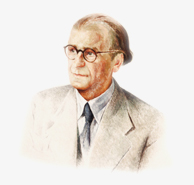1st International Conference on Language Contact in the Balkans and Asia Minor
November 3rd-5th, 2016
Teloglion Fine Arts Foundation, A.U.Th., Thessaloniki
The Institute of Modern Greek Studies (M. Triandaphyllidis Foundation), Aristotle University of Thessaloniki, organized the “2nd International Conference on Language Contact in the Balkans and Asia Minor”, on 3-5 November 2016, in Thessaloniki. The conference investigated language contact in the Balkans and Asia Minor, with a special focus on the relationship between Greek and other languages in these regions.
Keynote speakers: professors Bernt Brendemoen (Universitetet i Oslo) and Klaus Steinke (Universität Erlangen), leading scholars on issues related to language contact in the conference’s focus areas. In addition, internationally acclaimed scholars such as Brian Joseph (Ohio State University, Columbus), Matthias Kappler (Università Ca’Foscari, Venezia), Irena Sawicka (Polska Akademia Nauk, Warszawa), Andrej Sobolev (Universität Marburg) participated in the conference.
Our decision to organize a conference on language contact in the Balkans and Asia Minor has been motivated by the recognition that research on language contact in these two regions is usually conducted independently, and without mutually benefiting from the results and achievements of studies regarding such phenomena in each of these two regions, despite the fact that these regions share the same two basic languages (Greek and Turkish) and, to a great extent, a common historical background. The conference initiated a fertile discussion between that strand of research whose object of study is language contact in the Balkans and the corresponding one focusing on Asia Minor. In this respect, the papers presented at the conference can be classified under three headings: (a) those focusing on the Balkans, (b) those zeroing in on Asia Minor, and (c) those whose interest lies in the comparative investigation of these two regions.
The thematic areas of the conference include, but are not limited to: (1) theoretical issues in language contact, (2) language contact and dialectology, (3) language contact and etymology, (4) language contact and typology, (5) language contact and philology. Issues regarding all levels of linguistic analysis that are influenced or determined by language contact (phonology, morphology, syntax, the lexicon, etc.) are addressed.
With regard to (geo)typological studies, the Balkans offer a typical example of a linguistic area, the Balkan Sprachbund. Recent research has confirmed the existence of an equally important language area in Asia Minor, the Anatolian Sprachbund. Its investigation is expected to give a better understanding of the controversial term “Sprachbund” and enhance our knowledge of the linguistic landscape in Asia Minor. A comparison between these two language areas, whose typical features vary considerably, shows clearly that, despite their similarities, the two areas also present important differences, that are not only reflected in linguistic isoglosses, but also in cultural ones. From this perspective, the conjunction «and», which brings together the Balkans and Asia Minor in the title of the conference, functions not only cumulatively, but also contrastively.
The conference title also puts forward the demand for a diachronic investigation of language contact through its proposal for a co-examination of the related issues in three periods, the antiquity, the Medieval period and the modern one. Besides the need to bring to the fore the historical depth and the inter-spatial width of these contacts, this co-examination aspires to (1) point out both the similarities and the particularities of language contact phenomena in each historical period, (2) comparatively examine the contact between two languages or dialects in different periods in these two regions, and 3) trace language areas in the Balkans and Asia Minor (or review earlier suggestions regarding potential language areas) also during the antiquity, and to compare them with corresponding language areas of recent times.
The conference was the second one in the series of annual international conferences for the diachronic and diatopic study of the Greek language organized by the Institute of Modern Greek Studies, and are alternately devoted to (a) Greek Etymology (2015), (b) Language Contact in the Balkans and Asia Minor (2016), and (c) Koine, koines and the formation of Modern Greek koine (2017).



